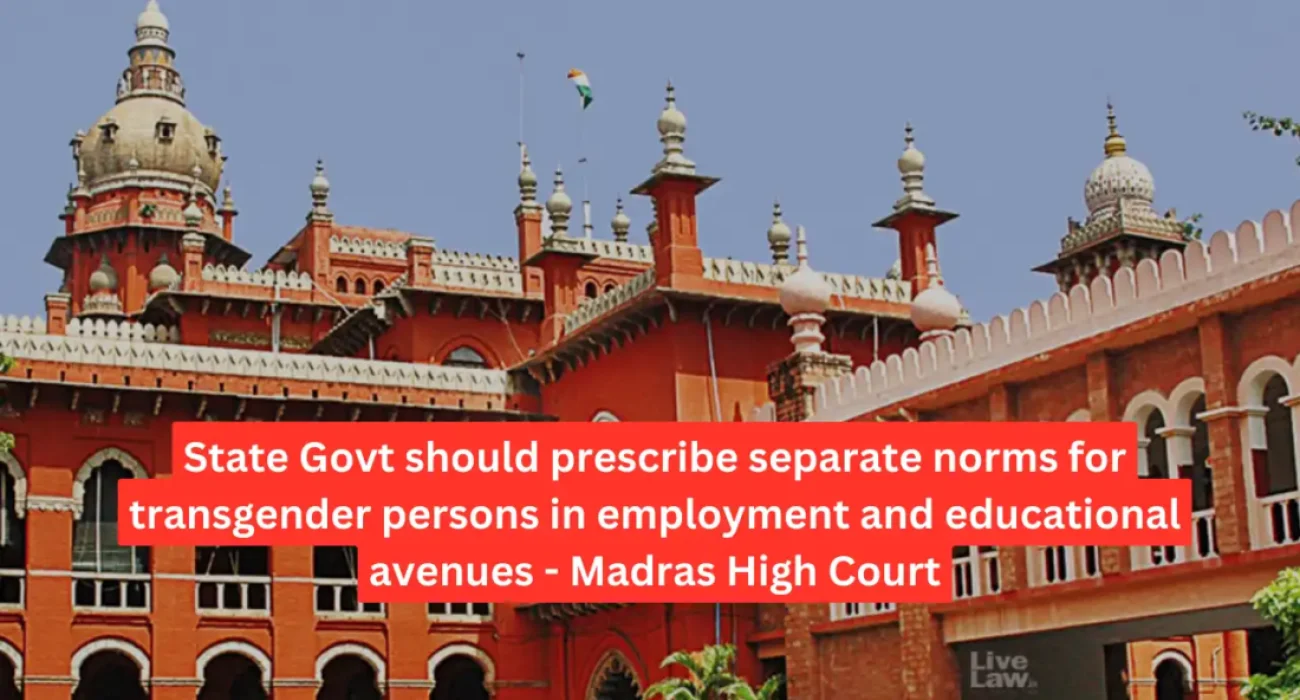

Table of Contents
ToggleThe state government has been directed by the Madras High Court to create special standards for transgender people in terms of job and educational prospects. The court made it clear that transgender people should be treated as a distinct group with its own set of standards rather than being placed in the male or female categories.
The case revolved around a transwoman who aspired to participate in the recruitment for a position included in the Combined Civil Service Examination – II (Non-Interview Post). She claimed that by not recognizing her under a special category, the Tamil Nadu Public Service Commission (TNPSC) had denied her the opportunity to be considered for the position.
The petitioner argued that transgender people were not afforded equal employment chances. She maintained that transgender people were forced to request judicial intervention in order to receive relief during every recruitment procedure. She met the special category cut-off point but was not contacted to verify her documents; candidates with lower scores were able to upload their supporting documentation.
The TNPSC contended that they were abiding by the laws and regulations imposed by the authorities. They declared that they were unable to consider transgender people as a separate category in the absence of official notifications or directives. In this instance, the petitioner was not selected because she had applied under the Scheduled Caste category and did not receive the necessary number of marks for that category.
Judge Bhavani Subbaroyan noted that transgender people were still frequently classified as male or female depending on their caste by the state government, which was still unsure on how to classify them. The court emphasized that governments were ordered by the Apex Court’s NALSA ruling to provide benefits to transgender people that are comparable to those provided to socially and educationally disadvantaged groups. It was not the Supreme Court’s intention, nevertheless, for this directive to be misunderstood and used to classify transsexual people as belonging to the most backward community or caste.
The Court stated that transgender people’s rights were violated because the recruitment notice did not acknowledge them as a distinct group. The Court stressed that depriving transgender individuals of possibilities pushes them into marginalized lives and that it is the responsibility of the government to improve their quality of life by offering sufficient opportunities.
The state government was instructed by the Madras High Court to treat transgender people as a separate category rather than classifying them as male or female in all job and educational opportunities. The government was directed to impose distinct regulations on transgender individuals, which need to be more permissive than those governing male and female candidates. In order to ensure that the petitioner is given fair treatment during the recruiting process, the court further ordered the TNPSC to permit the petitioner to upload her documents for certificate verification.
IAW resources
Browse our help directory